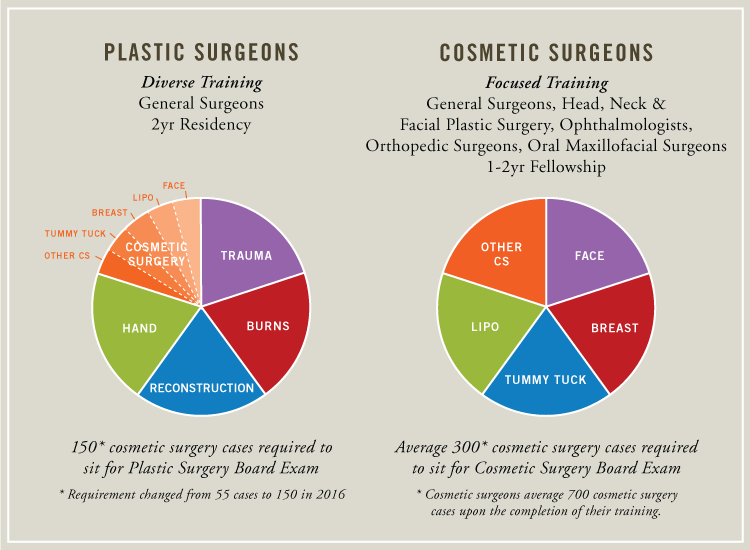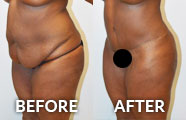Cosmetic vs. Plastic Surgery
Consultations offered at our four convenient locations in Calhoun, GA, Chattanooga, TN, Ooltewah, TN and Blueridge, GA
Contents
- 1 What’s the difference?
- 2 What is cosmetic surgery?
- 3 What is plastic surgery?
- 4 What is the difference between plastic and cosmetic surgery?
- 5 Why is cosmetic surgery commonly equated with plastic surgery if they’re two separate specialties?
- 6 What is the difference between how a cosmetic surgeon is trained versus a plastic surgeon?
- 7 What does it mean if a physician is board certified?
- 8 Why should one see a board-certified cosmetic surgeon versus a board-certified plastic surgeon?
- 9 Are cosmetic surgeons board certified?
- 10 What is the American Board of Cosmetic Surgery? What are the requirements for Board Certification in cosmetic surgery?
- 11 What are the benefits of having a cosmetic surgeon perform cosmetic procedures?
- 12 What should consumers think about when they are looking for a physician to perform a cosmetic procedure?
- 13 At what age do most people have cosmetic surgery?
What’s the difference?

Plastic surgery is defined as a surgical specialty dedicated to reconstruction of facial and body defects due to birth disorders, trauma, burns, and disease. Plastic surgery is intended to correct dysfunctional areas of the body and is reconstructive in nature.
The American Academy of Cosmetic Surgery (AACS) is a professional medical society for cosmetic surgeons whose members are dedicated to patient safety and physician education. Founded in 1985, the AACS has more than 2000 members, including Dr. Deal, Dr. Gardner, and Dr. Nease, and represents cosmetic surgeons in the American Medical Association.
The AACS covers a number of practice areas, including dermatology, oral & maxillofacial surgery, otolaryngology, general surgery, ophthalmology, and plastic/reconstructive surgery. The AACS is the organization that represents cosmetic surgeons in the American Medical Association. The Academy, in conjunction with the Cosmetic Surgery Foundation, sponsors the Annual Scientific Meeting as well as many live-surgery workshops.
The AACS has designed a special patient education website explaining the difference between cosmetic surgery and plastic surgery, and how to choose your cosmetic surgeon. This website clears up a number of misconceptions in the media, issues about board-certification and the multi-disciplinary nature of cosmetic surgery.
The following information is from the AACS:
What is cosmetic surgery?
Cosmetic surgery restores your appearance.
Cosmetic surgery is a subspecialty of medicine and surgery that uniquely restricts itself to the enhancement of appearance through surgical and medical techniques. It is specifically concerned with maintaining normal appearance, restoring it, or enhancing it. Cosmetic surgery is a multi-disciplinary and comprehensive approach directed to all areas of the head, neck and body.
To become a cosmetic surgeon you have to be a fully trained, board-certified surgeon first.
The educational profile of this specialty is unique in that it begins with a fully trained and board certified surgeon. Through continued post-residency education, training, and experience, cosmetic surgery is taught and learned across traditional disciplinary boundaries. The subspecialty fully incorporates the participation and knowledge from all contributing disciplines to attain a high level of skill and understanding. Contributing disciplines include dermatologic surgery, facial plastic surgery, general surgery, plastic surgery, otolaryngology, oculoplastic surgery, oral-maxillofacial surgery and others.
What is plastic surgery?
According to the American Society of Plastic Surgeons, plastic surgery is a surgical specialty dedicated to reconstruction of facial and body defects due to birth disorders, trauma, burns, and disease.
What is the difference between plastic and cosmetic surgery?
Cosmetic surgery is entirely elective and meant to enhance one’s appearance. Plastic surgery is medically indicated and reconstructive in nature.
Why is cosmetic surgery commonly equated with plastic surgery if they’re two separate specialties?
The most important thing to remember is that the terms ‘plastic surgery’ and ‘cosmetic surgery’ are not interchangeable. Confusion about the terms has led to public misconceptions about the two specialties. Cosmetic surgery is the “surgery of appearance.” It is elective and focuses on the aesthetics of beauty.

What is the difference between how a cosmetic surgeon is trained versus a plastic surgeon?
A cosmetic surgeon is a doctor who has completed his training in a particular area such as general surgery, otolaryngology, head and neck surgery or plastic surgery and has gone on to receive continuing medical education through a one or two-year fellowship training program in the specialty of cosmetic surgery.
A plastic surgeon is a doctor who has completed his residency in plastic surgery, specializing in such topics as facial and body defects, burns, birth disorders and disease.
Plastic surgeons learn little about cosmetic procedures in their residency training programs.
What does it mean if a physician is board certified?
Being board certified means that a physician has successfully completed an approved education and training program and a rigorous evaluation process designed to assess the knowledge, skills and experience necessary to provide quality patient care in that specialty. In the case of cosmetic surgery, the American Board of Cosmetic Surgery (ABCS) is the only board that certifies physicians exclusively in the field of cosmetic surgery.
Why should one see a board-certified cosmetic surgeon versus a board-certified plastic surgeon?
We encourage patients to seek medical professionals that specialize in a specific field. Doctors who are board-certified in cosmetic surgery have passed the necessary examinations to prove their proficiency in cosmetic surgery.
Are cosmetic surgeons board certified?
‘Fellow’ members of the American Academy of Cosmetic Surgery (AACS) must be board certified by an American Board of Medical Specialties (ABMS)-approved surgical specialty or the American Board of Cosmetic Surgery (the only board that certifies physicians exclusively in the field of cosmetic surgery). It is important to note that residency training alone cannot ensure adequate training in cosmetic surgery. Physicians develop their cosmetic surgical skills through post residency training and experience.
What is the American Board of Cosmetic Surgery? What are the requirements for Board Certification in cosmetic surgery?
The American Board of Cosmetic Surgery is the only certifying board exam devoted to examining a surgeon’s skill in cosmetic surgery of the face and body. It is an independent subspecialty board that examines and certifies physicians in general, facial and dermatological cosmetic surgery.
What are the benefits of having a cosmetic surgeon perform cosmetic procedures?
Cosmetic surgeons are dedicated to the art of cosmetic surgery. Their strong knowledge base, high level of training and practical experience make them among the most qualified to perform safe and proper cosmetic procedures. Cosmetic surgeons also offer a unique, multidisciplinary approach to patient care that brings breadth and depth of expertise to the field.
What should consumers think about when they are looking for a physician to perform a cosmetic procedure?
The American Medical Association (AMA) recommends that patients choose a health care provider based on his or her training, education, experience and demonstrated practice history. Ultimately, prospective patients need to choose a physician based on the procedure they are having. They should know how often their physician performs the procedure as well as his or her training in that area. Consumers should also speak with individuals who have received patient care from the physicians they are considering and ask to see results before committing to a doctor.
At what age do most people have cosmetic surgery?
According to the American Academy of Cosmetic Surgery’s (AACS) procedural statistics, the average age patients receive cosmetic surgery is 41.
Treatments such as breast augmentation, liposuction, rhinoplasty (nose job) and dermabrasion are common among younger patients while procedures including blepharoplasty (eyelift), breast lift, facelift and Botox®are more commonly sought by older patients


